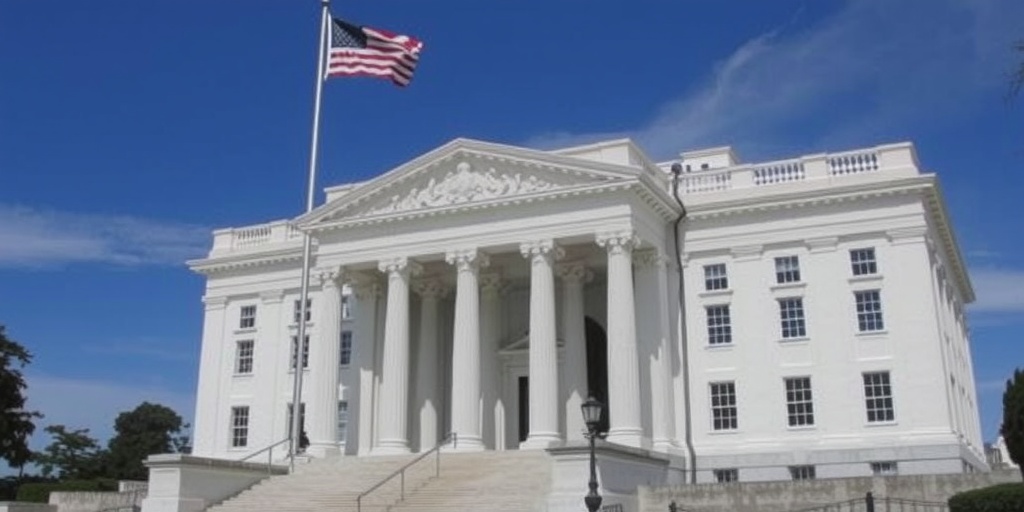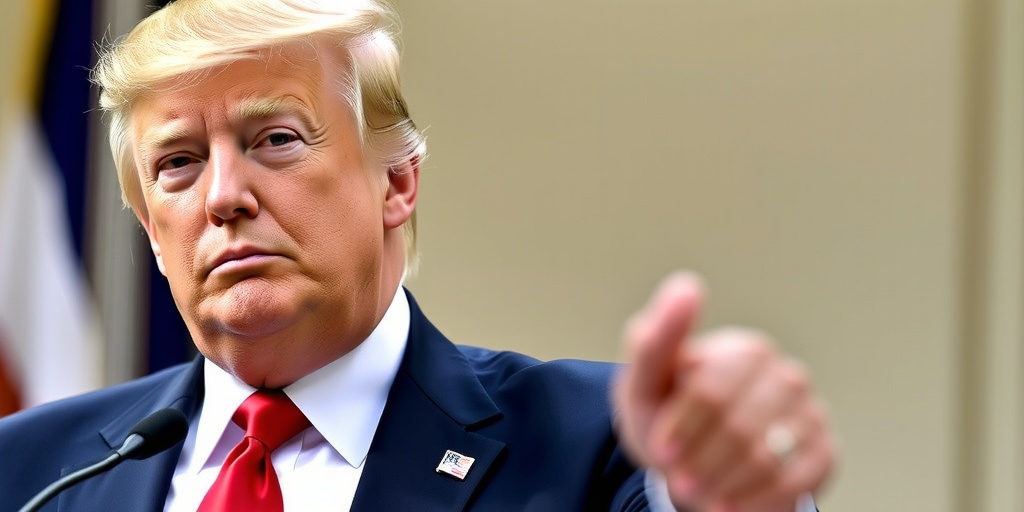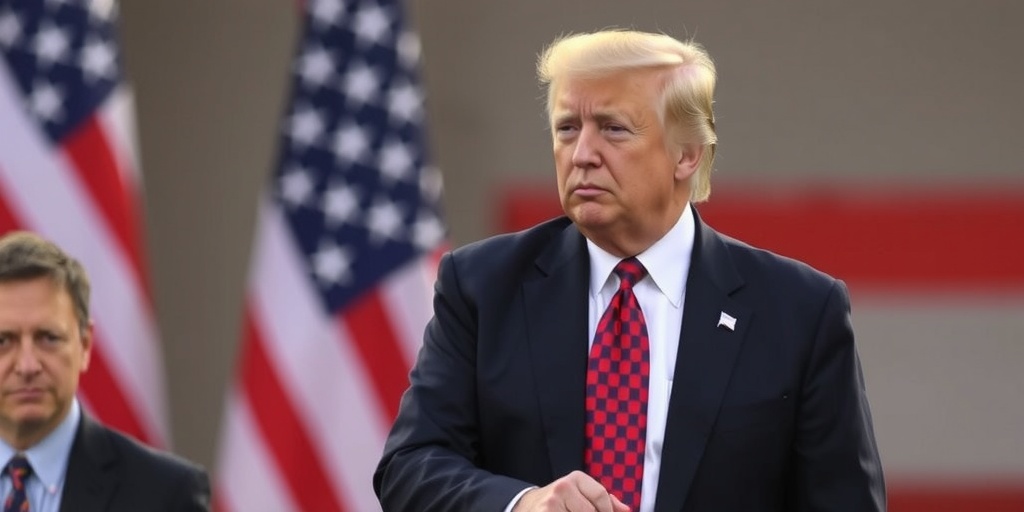Now Reading: Another Major Law Firm Aligns with Trump
-
01
Another Major Law Firm Aligns with Trump
Another Major Law Firm Aligns with Trump

Milbank Law Firm Partners with Trump Administration Amidst Legal Controversy
In a significant development within the legal landscape, the Milbank law firm has reached a controversial agreement with the Trump administration concerning the provision of pro bono legal services. This agreement comes as a response to an executive order that could potentially hinder the firm’s business operations. President Donald J. Trump announced this collaboration on his social media platform, Truth Social, revealing that Milbank would contribute $100 million in legal services to various causes championed by his administration.
The agreement highlights Milbank’s commitment to support a range of initiatives focusing on veterans, active military personnel, and individuals facing injustices within the criminal justice system. This partnership aligns with the Trump administration’s broader goals, further solidifying the firm’s position amidst ongoing political and legal scrutiny.
As part of the agreement, Milbank has pledged to implement a merit-based system aimed at avoiding what the administration terms "illegal D.E.I. (Diversity, Equity, and Inclusion) discrimination." This stipulation reflects a growing concern within the Trump administration regarding the perceived biases that law firms may exhibit in their legal practices, particularly against politically conservative ideologies. Furthermore, Milbank assured that representation would not be denied based on a client’s political beliefs, indicating a strong commitment to inclusivity and representation across the political spectrum.
This agreement follows a trend where large law firms have found themselves navigating the complexities of their relationships with the Trump administration. The administration has actively sought to negotiate with firms that have employed attorneys involved in investigations against Trump or those who have been vocal critics of his presidency. This strategic maneuvering has raised questions about the implications for legal ethics and the independence of the legal profession.
Milbank’s recent hiring of Neal Katyal, a prominent attorney and former acting Solicitor General during the Obama administration known for his criticisms of Trump, adds another layer of complexity to this situation. Despite his previous criticisms, Milbank’s agreement with the Trump administration suggests a pragmatic approach in navigating the legal landscape while continuing to provide high-quality legal representation.
This settlement follows similar arrangements made by other prestigious law firms such as Skadden, Arps, Slate, Meagher & Flom and Willkie Farr & Gallagher, both of which have also found themselves aligning with the administration after facing executive orders that threatened their ability to represent clients engaged with government contracts. The urgency displayed by these firms to secure their operations in the face of political pressure reflects the ongoing tension between legal advocacy and political affiliations.
While some law firms have opted for collaboration, others, like Paul, Weiss, Rifkind, Wharton & Garrison, have chosen to settle with the administration following direct executive action against them. The approach of such firms has drawn criticism from various legal scholars and industry professionals, who argue that capitulating to political pressure only emboldens the administration in its attempts to undermine legal representation for those seen as adversaries.
The backlash against Milbank’s agreement has been palpable, especially given the firm’s stature and the precedent it sets within the legal community. Critics warn that such settlements may pave the way for further erosion of principles regarding the independence of legal representation, allowing the administration to target additional firms it perceives as adversaries.
In a statement released on Truth Social, President Trump emphasized the significance of Milbank’s support for his initiative to combat what he describes as the “weaponization” of the legal system and to prevent politically motivated litigation. Milbank’s chairman, Scott Edelman, expressed a desire to “find common ground” with the administration, although he did not immediately respond to requests for further comment.
The New York City Bar Association, representing one of the oldest attorney bar associations in the United States, has publicly supported those law firms resisting the administration’s pressure. The association backs lawsuits initiated by firms such as WilmerHale and Jenner & Block, affirming the rights of lawyers to represent clients without fear of political repercussions.
In conclusion, the agreement between Milbank and the Trump administration marks a pivotal moment in the intersection of law and politics, as firms evaluate the implications of their partnerships in an increasingly polarized climate. As legal battles continue in the courts, the discussions surrounding the independence and integrity of the legal profession will remain at the forefront of public discourse. The unfolding circumstances will undoubtedly shape the future of legal representation in the context of political influence and ethical considerations.
Stay Informed With the Latest & Most Important News
Previous Post
Next Post
-
 01New technology breakthrough has everyone talking right now
01New technology breakthrough has everyone talking right now -
 02Unbelievable life hack everyone needs to try today
02Unbelievable life hack everyone needs to try today -
 03Fascinating discovery found buried deep beneath the ocean
03Fascinating discovery found buried deep beneath the ocean -
 04Man invents genius device that solves everyday problems
04Man invents genius device that solves everyday problems -
 05Shocking discovery that changes what we know forever
05Shocking discovery that changes what we know forever -
 06Internet goes wild over celebrity’s unexpected fashion choice
06Internet goes wild over celebrity’s unexpected fashion choice -
 07Rare animal sighting stuns scientists and wildlife lovers
07Rare animal sighting stuns scientists and wildlife lovers





















